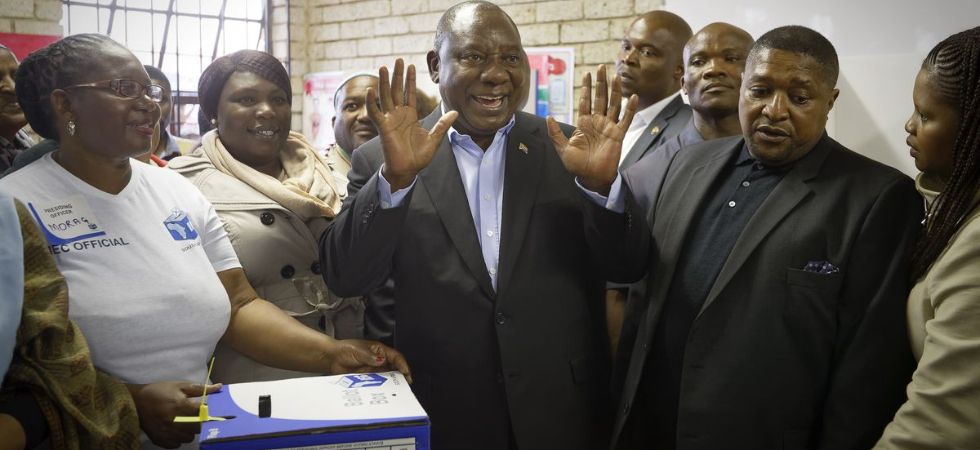 President Cyril Ramaphosa and his party, the African National Congress (ANC), have won reelection in South Africa, maintaining its control of government.
President Cyril Ramaphosa and his party, the African National Congress (ANC), have won reelection in South Africa, maintaining its control of government.
The ANC, which has led South Africa’s government since the fall of apartheid in 1994, was expected to prevail in the elections. But corruption and the country’s stagnant economy tested the party’s standing.
In the end, it won slightly more than 57 percent of the vote — the first time in 25 years the party has failed to win at least 60 percent in national elections.
Even though the ANC still has no serious challengers — the main opposition party, the Democratic Alliance, came in second place with just 20 percent of the vote — its dip in support is notable.





